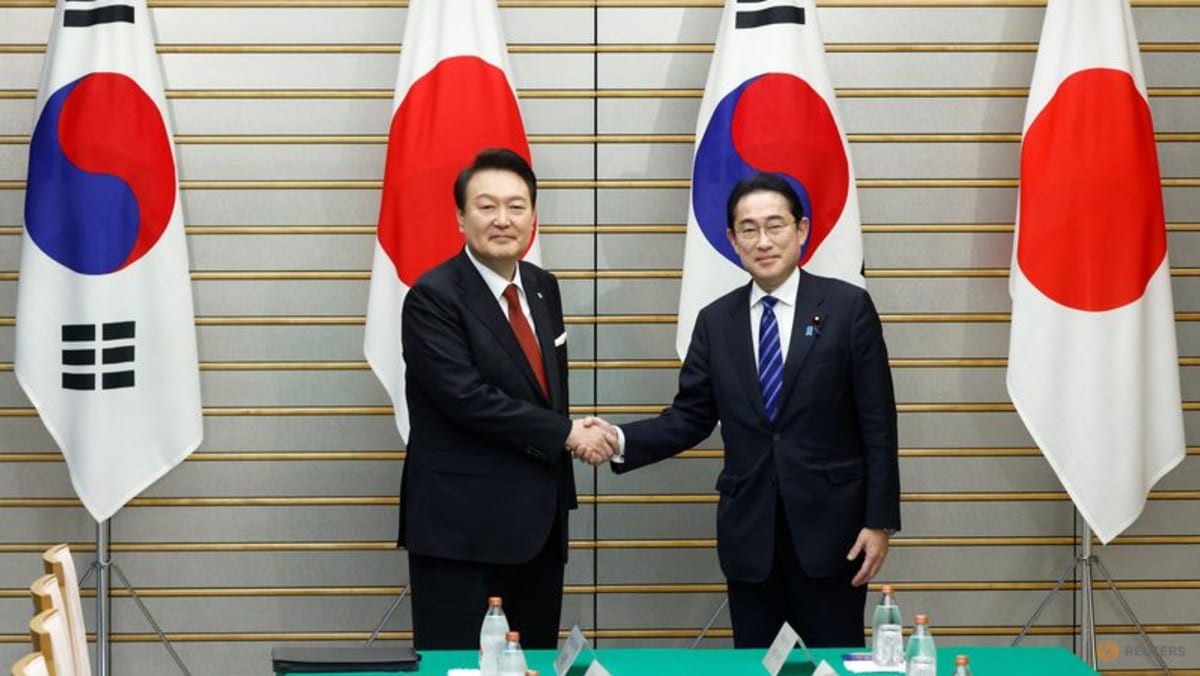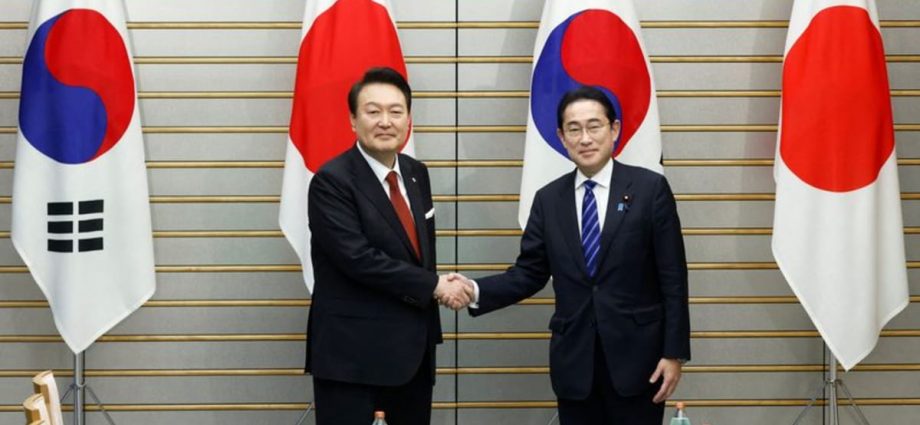
Their opinions could be influenced by the country’s politicians who use a hatred of Japan to increase their votes, he noted.
“That is a very big danger because there are two very important, economic giants in this arena … and we’re trying to mend this, but they’re trying to use this as their political tool, which I think is very, very sad,” he said.
Such methods may also be used by Japanese politicians, he said.
NEED FOR COUNTRIES TO WORK TOGETHER
While the road to better relations between the countries may be uphill, the need for them to work together given the changing geopolitical landscape is clear, both experts said.
“There was a sense that this was a race against time, and that it was important for both countries to work together because they now live in an increasingly dangerous neighbourhood,” said Dr Solis, explaining the precipitating factors for the meeting.
She was describing the sense that North Korea is now increasingly assertive and gaining greater military capabilities.
North Korea’s firing of another long-range ballistic missile hours before the summit reinforces the need behind this rapprochement and the two sides’ desire to have a more functional and closer relationship, she added.
There is also uncertainty and unease about China’s role in the region, Dr Solis said.
Joining hands when it comes to the semiconductor industry is one way of pressuring China, Prof Takeshita said.
“The Chip 4 (alliance), which is the United States, Korea, Taiwan and Japan, ganging up together basically in areas of semiconductors would have a very strong structural block against Chinese threat in areas of, for example, information in the industry,” he said.

